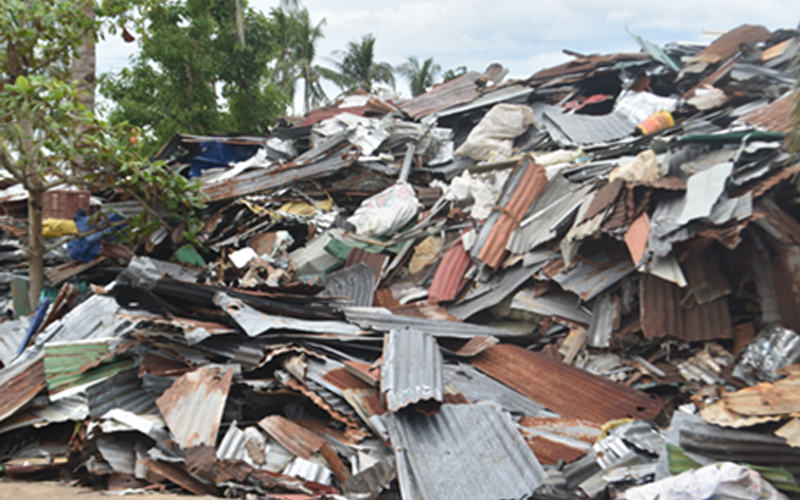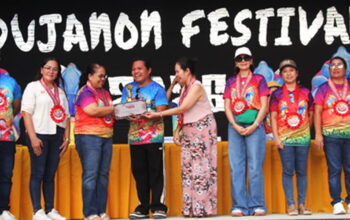
THE super typhoon Odette wrecked havoc in the entire province when it land-fell on December 16, 2021, leaving scores of deaths and public and private property destruction never seen and experienced before.
But it also brought an opportunity favorable for those who, like Resan Calo, take advantage for good.
Calo, in his 40s, of barangay Camambugan, Ubay, Bohol, told the TIMES that he has to buy G.I. sheets or its remnants of the private houses destroyed by the typhoon since these may not be useful anymore for the owners.
And doing so, he said, may also help those affected families whose houses’ G.I. sheets may no longer be utilized for their new homes to build as these were already crumpled or perforated.
Days after the typhoon, people started to bring their damaged roof tops made of zinc or G.I. sheets to Calo’s junk shop.
He said that he’s also making pick up to those who wanted their GI sheets brought to his junk shop.
He said he bought it at P9 per kilo, but then as time goes by, it went down to P8/kilo then to P6/kilo of the G.I. sheets. This is because the buyer of his “scrap” products in Cebu City and Cagayan de Oro also get it cheaper.
This is aside from competition as other scrap dealers in Ubay town, some five of them, are also into buying tons of scrap zinc and other remnants of iron and anything useful for the business, he said.
He said it’s okay for the competition to thrive so that others may be able to buy rice.
For now, he stocked over 40 tons of the unused G.I. sheets of different shapes (corrugated or plain), sizes and colors. This prompted him to rent an adjacent vacant lot owned by three for over P12,000 a month so that he can store the scrap merchandise since the lot he owned where his shop is located cannot anymore accommodate the stocks.
He said at least two of his cargo trucks full of junked G.I. sheets are ready for shipment to Cagayan de Oro city, Misamis Oriental via roll-on-roll-off in Jagna port.
He said he will be spending about P50,000 for each truck shipped, including, wages of his workers, driver, fuel and other intervening expenses.
He said that he has been in this craft for five years here after he transferred with his family from Cebu where he had similar business for 14 years.
Why he left Cebu City and headed here is because his siblings, four brothers and a sister, also already learned his business acumen and began running their own.
Calo said that as he grows older he trained his daughters, saying God only knows if his children endure the said business.
His daughters are only permanent workers while others are on a “pakyaw” basis at his shop.
Calo buys other junk products, like those scrapped vehicle engines for spare parts are still useful, cables particularly those having copper materials and select empty bottles.
But, meantime, he paused to buy empty bottles since he has no place to stock them, he said.
Not only junk enterprises he engaged in but also he is into farming. He did not elaborate, however.
He said that he has come at this stage of his life doing this “dirty” job for his dedication, industry and patience to be able to improve his financial status. (rvo)


